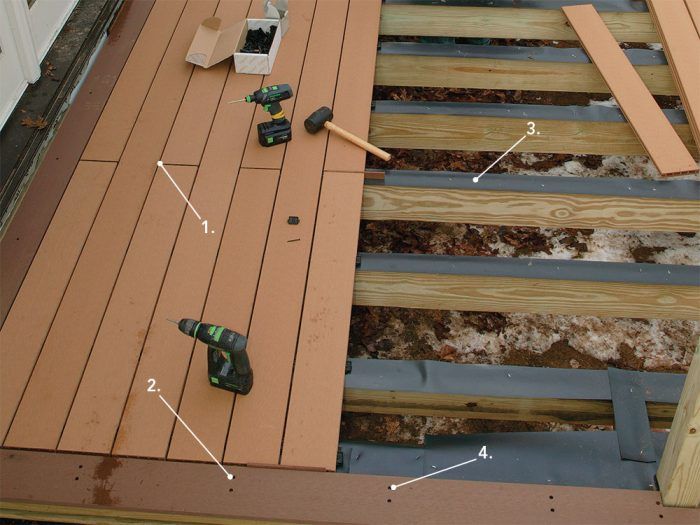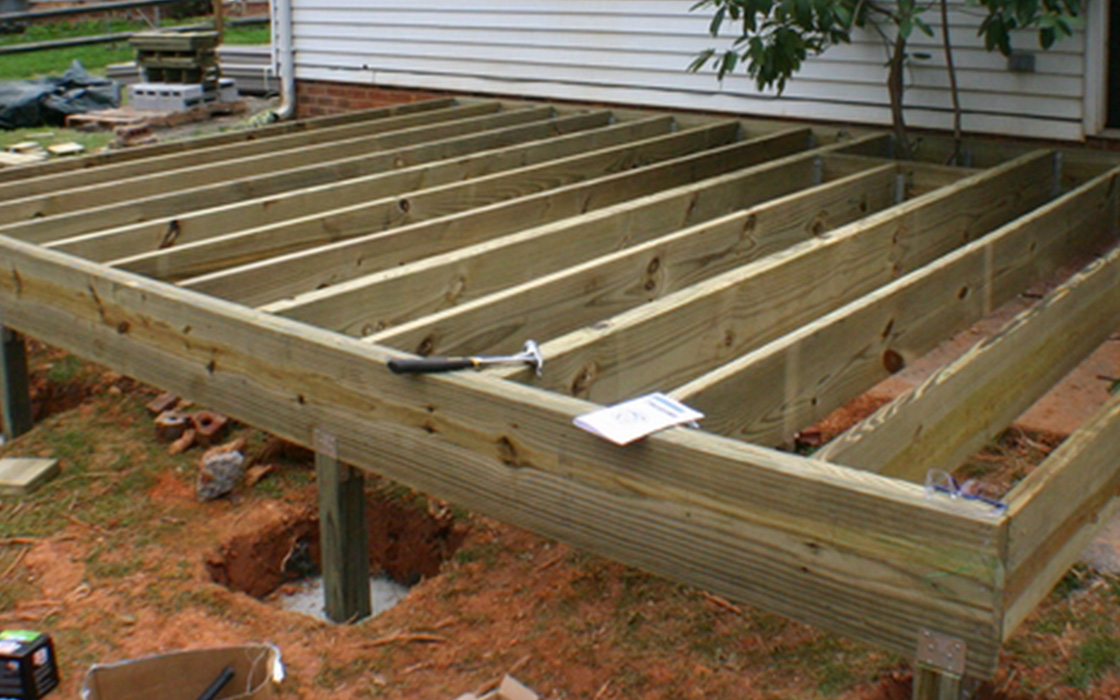If you want high-quality results, invest in high-quality materials for your deck installation.
If you want high-quality results, invest in high-quality materials for your deck installation.
Blog Article
How to Choose the Right Products for Your Deck Installation Job
Picking the appropriate materials for your deck installment task can seem complicated. There are various factors to take into consideration, from resilience and upkeep to visual appeals and ecological effect. The option between conventional timber and composite materials, each with its very own set of benefits and drawbacks, can be especially tough. The secret is to balance your budget plan, layout preferences, and way of life needs to produce a deck that will certainly improve your exterior area for many years to come.
Understanding the Various Kinds Of Deck Materials
When beginning on a deck installment task, the selection of materials ends up being a crucial decision. Compound materials, on the various other hand, are a mix of timber and plastic, providing sturdiness and resistance to weather elements. By understanding these distinctions, house owners can make a much more enlightened choice on the most ideal deck material for their particular needs.
Evaluating the Durability and Maintenance Requirements of Deck Products
Assessing the toughness and upkeep requirements of deck materials is a vital action in deck installation. Longevity entails the material's capability to endure severe climate condition, deterioration, and its long life. For circumstances, cedar and redwood are normally immune to rot and pests, making them long lasting selections. On the other hand, pressure-treated wood, while durable, might call for even more upkeep because of its vulnerability to splitting and deforming.
Understanding upkeep requirements is similarly important. Some products require routine securing or tarnishing to preserve their appearance and withstand dampness damages, while others, like composite decking, require less maintenance. By examining these aspects, one can choose one of the most appropriate outdoor decking material, making sure a balance in between resilience, upkeep needs, and aesthetic allure.
Expense Analysis: Contrasting Timber and Compound Decking
Although price might initially appear like a second concern, it is a substantial aspect when comparing timber and composite decking. On the other hand, composite decking, while costlier initially, requires much less upkeep, potentially decreasing lasting expenses. Possible deck owners should consider their spending plan and willingness to preserve their decks when choosing in between timber and composite outdoor decking.
Looks and Layout Flexibility of Decking Products
All-natural wood decking gives a classic, timeless appearance, while composite materials use a broad range of shades and structures to fit varied tastes and styles. Composite products, while less versatile in style, are still adaptable enough for a lot of deck styles. These factors, therefore, are critical factors in the choice of decking product.
Environmental Impact of Decking Materials
When selecting outdoor decking products, one must think about not just appearances and longevity, however likewise the environmental influence. It is necessary to examine the sustainability of products and check out recycled decking options. Recognizing the prospective influence on neighborhood environments will ensure an extra environmentally accountable selection.
Evaluating Product Sustainability
In the realm of deck building, examining material sustainability is a crucial action. This entails evaluating the ecological impact of each prospective material, taking into consideration aspects such as the energy needed for its production, its carbon footprint, and its end-of-life disposal or recycling choices. Wood is a renewable resource, but unsustainable logging techniques can lead to logging. Additionally, composite outdoor decking products commonly incorporate timber and plastic, lowering the demand for brand-new lumber but raising dependence on fossil fuels. Light weight aluminum and other metals may be a lot more resilient and recyclable, yet their removal and handling can be energy-intensive. Therefore, the original site choice of outdoor decking products ought to stabilize performance, looks, cost, and sustainability to make sure a responsible and resilient installment.
Recycled Decking Alternatives

Composite outdoor decking is especially popular due to its durability and convenience of upkeep. Recycled plastic decking, on the various other hand, is very resilient and requires marginal maintenance.

Impact on Local Communities
While the benefits of using recycled products for outdoor decking can not be overstated, it's just as essential to think about the wider environmental implications of these options. Proper disposal of old decking is essential to reducing landfill waste. Basically, an eco-conscious deck project needs cautious material choice, sustainable sourcing, and liable disposal.
Making Your Final Decision: Tips for Selecting the very best Deck Products
As the post transitions right into the subtopic of "Making Your Last Choice: Tips for Selecting the Ideal Deck Materials", it is critical to comprehend the selection of deck materials available. Striking an equilibrium between sturdiness and visual appeal is vital in this choice procedure. The adhering to conversation will direct visitors in making an educated selection based upon these vital factors to consider.
Comprehending Various Deck Materials
The job of picking the right products for your deck setup can seem intimidating due to the substantial array of options available. Vinyl or PVC decks are even more durable and call for less upkeep than composite materials, yet they can look less all-natural. Light weight aluminum decks are solid, light-weight, and immune to rot, however they are also the most costly option.
Resilience vs. Visual Appeals Equilibrium
Stabilizing sturdiness with aesthetics can be a difficulty when selecting deck products. The decision frequently comes down to individual choices and the deck's intended use. High-traffic areas might demand resilient materials like composite decking, which stands up to damage but might lack the natural charm of wood. On the other hand, wood uses an ageless appeal and warmth that synthetic materials struggle to replicate. It calls for more upkeep and might not last as long. Homeowners need to strike an equilibrium, thinking about both the deck's useful demands and their visual preferences. By doing so, they can ensure their deck remains a useful and attractive exterior space for many years to find.
Final thought
To conclude, choosing the appropriate materials for your deck installation job needs cautious consideration of elements such as resilience, upkeep, price, aesthetics, and ecological effect. Whether you select typical timber or composite products, your selection ought to align with your budget, style preferences, and way of living. Eventually, the most effective outdoor decking product is one that enhances your outdoor area and gives satisfaction for many years to more info here find.
Report this page